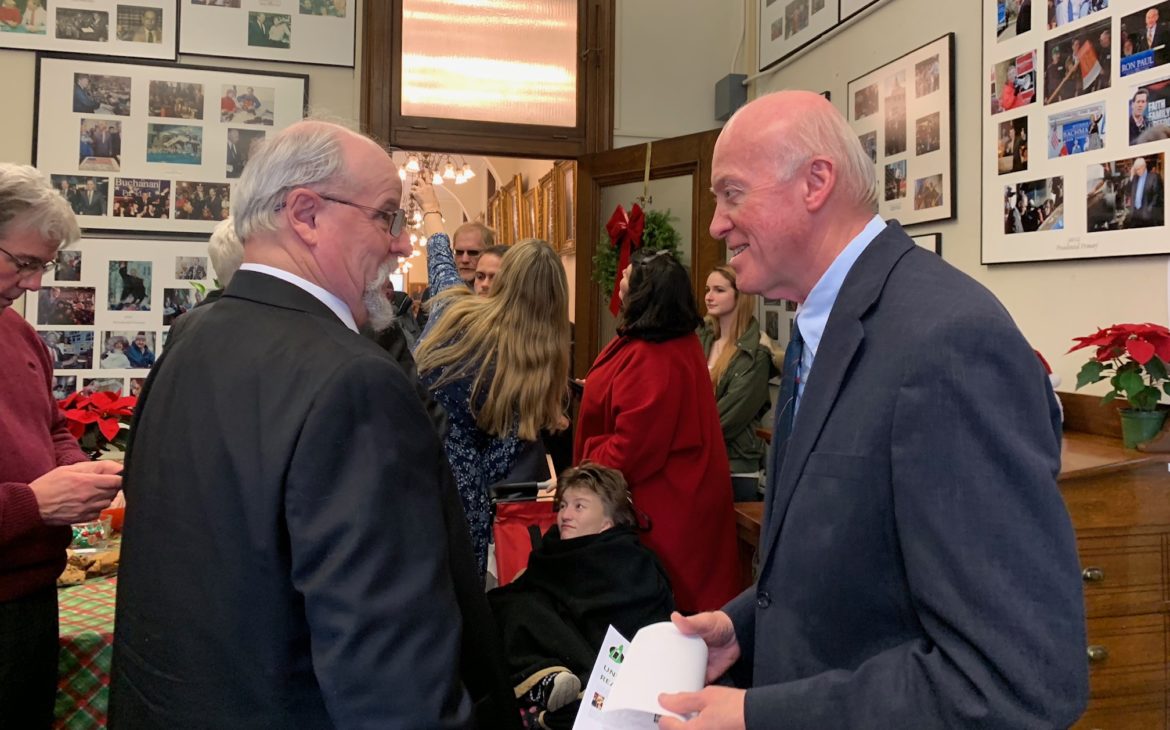By PAULA TRACY, InDepthNH.org
CONCORD – There is another election still out there if you can believe it, but this one will be decided only by the 424 members of the New Hampshire House and Senate.
It is the position of Secretary of State.
Since 1976 it has been filled every two years by Bill Gardner who has enjoyed the support of Republicans, though he is a registered Democrat.
According to 2019 state records, the Secretary of State is paid $123,177 a year.
Gardner said he will not start campaigning until after all recounts from Tuesday’s elections are completed and expects that perhaps Andru Volinsky or someone else is interested in running against him.
Volinsky, the Executive Councilor and attorney who successfully sued the state over education funding years ago, ran unsuccessfully for the Democratic nomination for governor this year.
Volinsky said Wednesday that it is “premature” to speculate on a run and that might be largely dependent on the political make-up of both the House and Senate. A Republican-controlled House and Senate, which appears likely to be the case, might not be as favorable to a Democrat.
Gardner likes the job and said he never told legislators two years ago that this current term would be his last.
Volinsky agreed that Gardner never promised he would retire as the nation’s longest-serving state top voting official after this term, but said others may have used that as an argument to give him another term when they voted 233-167 to support him over former Executive Councilor Colin Van Ostern, who challenged him in 2018 for the job.
Gardner won by a slim margin amid some criticism of his office management and his serving on President Donald Trump’s “Presidential Advisory Commission on Election Integrity.”
The state Constitution created the position as an independent office, neutral and non-political, and the court, over the years has held that the job has “one foot in the Executive Branch and one in the legislature,” Gardner said.
The Constitution calls for a vote on the first day of each new session of the legislature, along with the appointment of a State Treasurer.
That will occur in the first week of December.
Gardner said he believes Volinsky is interested in being the next Secretary of State because he sent out a message on his Twitter account this week asking all voters to fill out their entire ballot, noting that 424 members of the House and Senate will “choose the next Secretary of State.”
Volinsky said it is too early and he was still watching election returns Wednesday to determine the makeup of the general court.
Gardner said he saw a recent letter to current House and Senate members, written by a prominent state representative, intimating there was a lot more to the job of Secretary of State than elections.
Gardner said he took that letter as support to build up a potential alternative candidate.
In addition to overseeing ballots and acting essentially as a judge to the intent of ballots cast, the Secretary of State maintains state archives and records, has a corporate division and others, and is in charge of keeping notes for the Executive Council meetings.
The governor has no role in appointing the Secretary of State, constitutionally separating the Executive Branch from the role to protect it from political influence.
In the 1990s, the legislature enacted a law, Gardner said to further protect the job from politics by prohibiting caucusing among parties related to the selection of a Secretary of State.
Gardner, a former state legislator, took the job at age 28 when he was appointed in 1976 following the death of Secretary of State Robert Stark.
Over the years, Gardner has grown in national stature as Secretary of State and said he enjoys going to national meetings and learning best practices to bring home to be considered here. He bristled at the contention that he lobbies on bills, saying he only does it as it relates to protecting the role of Secretary of State.
Gardner said he is not thinking about that election now and has never hosted a political fundraiser, noting he usually communicates by letter to legislators and always after recounts are handled.





